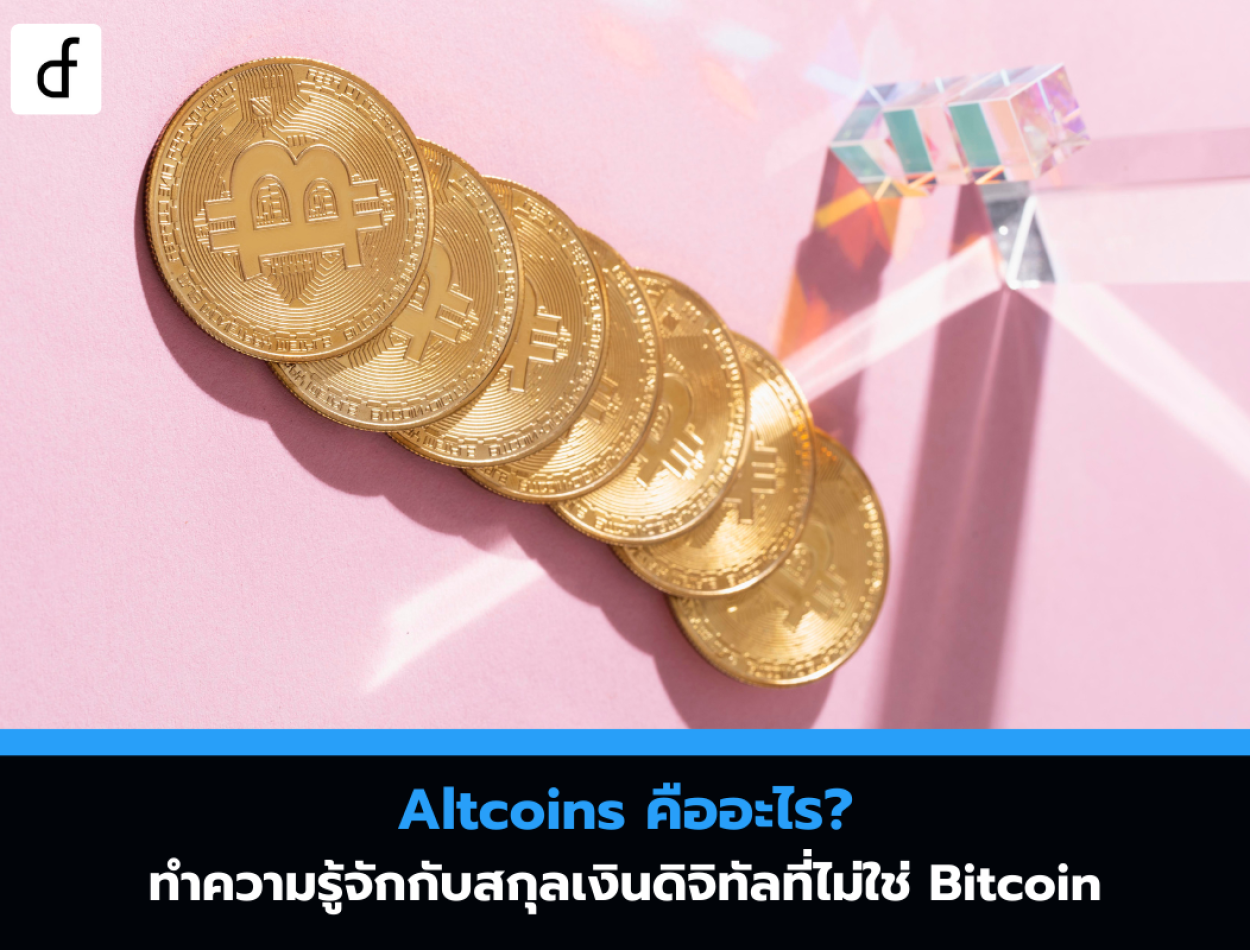
What are altcoins? Get to know cryptocurrencies that are not Bitcoin.
2024-12-04 09:14:33
Altcoins (Alternative Coins) are digital currencies or cryptocurrencies created as alternatives to Bitcoin, which is the first digital currency developed. Altcoins often have different characteristics or functionalities compared to Bitcoin to address issues or enhance efficiency in various aspects.

Currently, there are over 20,000 altcoins in the crypto market, each with diverse purposes and uses, such as speeding up transactions, reducing fees, or supporting the development of specialized applications.
Why do we need altcoins?
Bitcoin is the first digital currency created in 2009 with the goal of being a decentralized currency. However, Bitcoin has limitations such as
- Slow transaction processing
- High fees in some cases
- Specialized use
Altcoins emerged to introduce new features and improve upon the limitations of Bitcoin, such as speed, scalability, and specific use cases.
Types of Altcoins
Altcoins are divided into several categories based on their use cases and the technology behind them. Important categories include:
- Stablecoins
Currencies designed to reduce price volatility, such as USDT (Tether) and USDC (USD Coin), are often pegged to assets like the US dollar or gold.
- Utility Tokens
Coins used for accessing services or products, such as Chainlink (LINK), which is used to transmit data between the blockchain and external data sources.
- Security Tokens
Currency is designed to represent the value of assets, such as company shares or real estate.
- Payment Coins
Used for payments, such as Litecoin (LTC), Ripple (XRP)
- Governance Tokens
Coins that allow holders to participate in decision-making regarding project development, such as Uniswap (UNI)
- Meme Coins
Cryptocurrencies created from trends and often have no real use, such as Dogecoin (DOGE) and Shiba Inu. (SHIB)
The Advantages of Altcoins
- Diverse options
Altcoins come in various forms that meet different needs, such as transaction speed, energy efficiency, and specialized application development.
- Addressing Bitcoin's limitations
Many altcoins have been developed to address issues that Bitcoin cannot solve, such as supporting smart contracts or enhancing privacy.
- More investment opportunities
Having Altcoins gives investors the opportunity to choose to invest in new projects with growth potential.
- Support new technologies
Many altcoins use advanced technologies such as Proof of Stake (PoS) and DeFi. (Decentralized Finance)
Disadvantages of Altcoins
- High volatility
Like Bitcoin, the prices of altcoins are highly volatile, which can pose a risk for investors.
- Opportunity for scams
Due to the large number of coins in the Altcoin market and the lack of proper regulation, investors may fall victim to non-transparent projects.
- Low liquidity
Some altcoins have low trading volumes, making it difficult to trade them in the market.
- High competition
There are many Altcoins in the market, so for any one coin to succeed, it needs to have differentiation and good support.
Interesting altcoins
- Ethereum (ETH)
It is the most popular altcoin, supporting the development of smart contracts and decentralized applications. (dApps)
- Cardano (ADA)
Focus on sustainability and scalability.
- Polkadot (DOT)
Connecting multiple blockchain systems together
- Binance Coin (BNB)
Used in the Binance ecosystem, which is a cryptocurrency exchange platform.
- Solana (SOL)
Outstanding for its transaction speed and low fees.

Altcoins are an interesting option for those who want to explore the world of cryptocurrency beyond just Bitcoin. However, investing in or using altcoins requires good knowledge and research to select currencies that meet needs and have potential for the future.
Leave a comment :
Recent post

2025-01-10 10:12:01

2024-05-31 03:06:49

2024-05-28 03:09:25
Tagscloud
Other interesting articles
There are many other interesting articles, try selecting them from below.

2025-05-16 03:20:26

2024-10-10 09:46:13

2024-09-23 02:55:09

2025-03-07 02:23:37

2025-04-18 02:29:50

2023-11-10 10:29:12

2025-04-30 07:37:30


